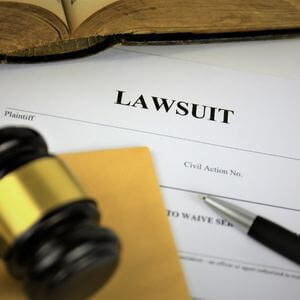So, you’ve been sued. While the idea of being served with a lawsuit is a nerve-racking experience, there are a few important things to remember. First, try to relax. Just because someone sues you does not mean that you did anything wrong or that they will succeed on their claim. Second, knowing what to do if you are sued will help put you in the best position to resolve the claim favorably. In this article, we will discuss the basics of being sued, and what steps you can take if it happens to you.
The Basics of a Lawsuit
When you are sued in Iowa, you will be served with two documents: an original notice and a petition. The original notice will list the court where the lawsuit was filed, the contact information of the party who brought the lawsuit, and the date by which you must respond. The petition will identify who is suing you, the legal reason you are being sued, and the remedy the opposing party is seeking.
How to Protect Your Interests
The best way to protect yourself after being sued is to speak with an attorney about your case. An experienced attorney will be able to discuss the merits of the claim, gather information and documents that will be important for your case, and help determine the best course of action for how to proceed. Seeking an attorney early on will help to ensure that you meet any deadlines set by the court, while also making sure you do not waive any possible defenses by failing to raise them in your answer. Contacting an attorney to handle your case from the beginning can help to save you time and money. The process of fully litigating a case can take years and cost thousands of dollars. However, contacting the right lawyer to handle your case can increase the odds that you will be able to stop the lawsuit earlier in the process, or to resolve the matter in the most favorable manner.
While there are many advantages that an attorney can provide, there are also steps you can take to help your own case. One of the most important steps you can take when you are sued is to preserve evidence relating to your case. While this evidence can come in many different forms, being proactive early on can pay dividends later in your case. Evidence may include copies of contracts or agreements, communications between you and the other party, and pictures of items that are relevant to the claim.
In relevant circumstances, it will also be important that you contact your insurance provider and notify them of the lawsuit. One benefit of carrying insurance is that in the event you are sued on grounds covered by your insurance, the insurance provider is often contractually required to pay for the cost of your legal defense and any settlements or judgements that result from it, up to the contractual limits. It is important to note that your insurance provider likely requires you to contact them within a certain timeframe of receiving notice of the lawsuit to preserve your right to coverage.
How Can We Help You?
While no one ever wants to be sued, the actions you take in response will have a direct impact on the outcome of your case. If you have any questions, or are seeking legal counsel to represent you, please contact us to discuss how we can help you to face these challenges head on, and to place you in the best position possible as you navigate the lawsuit.

